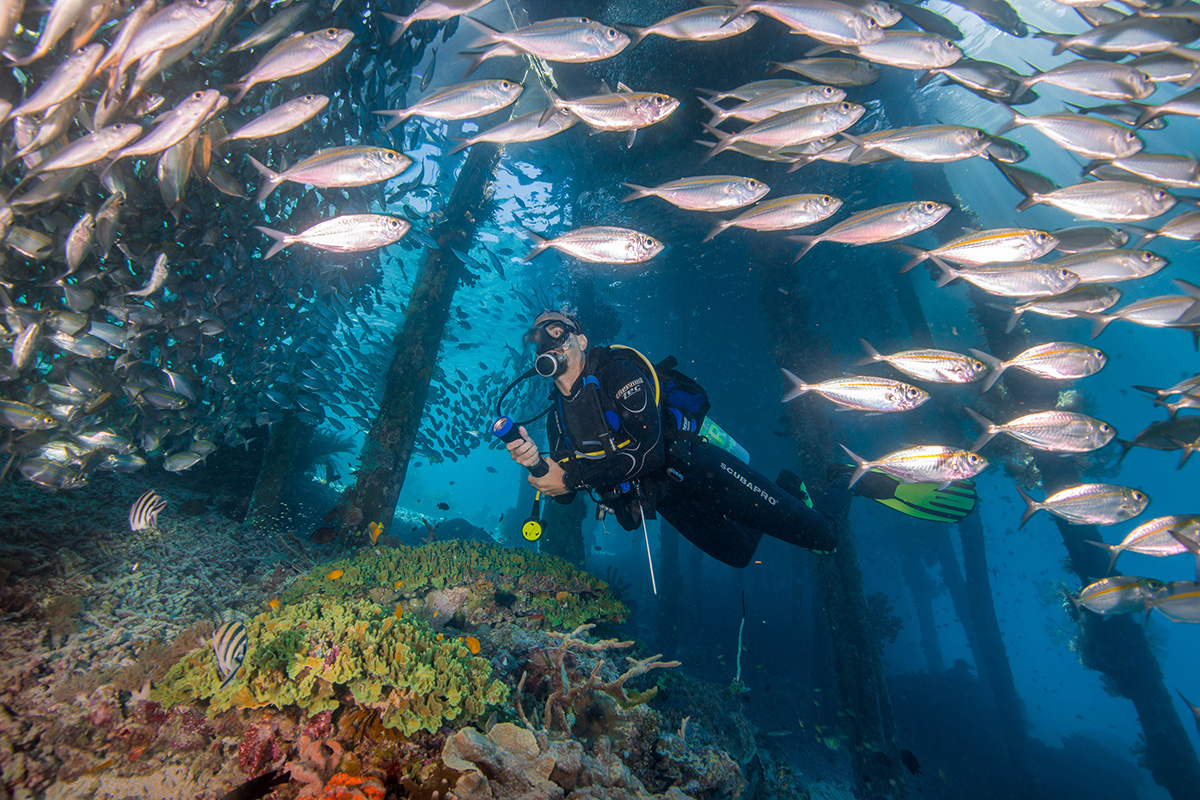Sustainable Diving Practices for Exploring Raja Ampat
Raja Ampat is a diver’s paradise renowned for its breathtaking biodiversity and stunning underwater landscapes. With over 1,500 species of fish and 600 types of coral, this Indonesian archipelago is a hotspot for marine life enthusiasts. However, diving and snorkeling in Raja Ampat come with the responsibility to protect these fragile ecosystems. Embracing sustainable diving practices is crucial to ensuring that Raja Ampat remains an amazing place to visit for future generations.
Understanding the Marine Environment
Raja Ampat is home to some of the richest marine biodiversity on the planet. Its coral reefs, teeming with life, provide essential habitats for countless species. Unfortunately, these ecosystems face significant threats from climate change, overfishing, and pollution. Understanding these challenges is the first step toward becoming a responsible diver and making a positive impact during your visit.
Sustainable Diving Practices
- Respecting Marine Life: One of the fundamental principles of sustainable diving is to respect the marine creatures you encounter. Avoid touching or chasing fish and other wildlife, as this can stress them and disrupt their natural behavior. Remember, you are a guest in their home so just observe and enjoy from a respectful distance.
- Protect the Seabed: Refrain from touching corals or other delicate underwater structures. Even the slightest contact can harm fragile coral polyps, which take years to heal. Keep your fins, hands, and gear away from the seabed to avoid any accidental damage.
- Minimizing Waste: Reducing plastic and chemical use is essential in preserving Raja Ampat’s pristine waters. Bring reusable water bottles, bags, and reef safe soaps, sunscreens, and body lotions to minimize your environmental footprint. It is important to avoid single-use plastics and make a habit of disposing waste responsibly, especially when on diving trips.
- Practice Buoyancy Control: Improving your buoyancy control is a vital step in becoming an eco-friendly diver. Effective buoyancy helps minimize underwater disturbances and safeguards marine life. If you’re new to diving, consider enrolling in a buoyancy control course to refine your skills. These courses can boost your confidence and efficiency as a diver, ultimately reducing your impact on the underwater ecosystem.
- Conservation-Focused Diving: Papua Paradise Eco Resort offers opportunities for diver education like workshops and lectures on the health and conservation of the reefs. Participating in these initiatives not only contributes to the health of the reefs but also provides a deeper understanding of the marine environment.
Community Engagement
Supporting local communities is a vital aspect of sustainable tourism. Many organizations in Raja Ampat, including Papua Paradise Eco Resort, are dedicated to conservation and education. By choosing to stay and dive with operators that invest in local communities, you help ensure that tourism benefits the people who call this paradise home. Engage with local initiatives, and consider supporting projects that promote marine conservation and environmental awareness.
As a diver, you have the power to help protect the stunning underwater world of Raja Ampat. By adopting sustainable practices, we can ensure that this extraordinary ecosystem thrives for generations to come. Let’s dive with a conscience, embrace responsible tourism, and inspire others in the diving community to do the same. Together, we can make a difference one dive at a time.



